Ways to determine an infants caloric needs

Learn how to determine your baby’s caloric needs, including the calories in breast milk and formula, to ensure your infant gets the right nutrition for healthy growth.
The first time you become a mother, you will be very confused about how to properly care for a newborn. It can be a bit confusing when there is so much to learn, so much to adapt after the baby is born.
Refer to the following aFamilyToday Health article to learn about your baby's needs and how to properly take care of a newborn.
The correct way to take care of a newborn baby first of all you need to know is holding the baby. When holding your baby for the first time, you are a little confused about how to properly hold the baby . Don't worry, after a few days of taking care of your baby, you will know how to hold your baby and realize which position he likes to be held most. Each baby will love to be held in a separate position, some babies like to be carried, but some babies like to be held on their backs ...
Whether your baby is crying for a lift or he is simply awake so you want to pick him up to cuddle, before you pick him up, you need to let him know that you will be holding him. Look at your baby and talk lovingly with your baby, gently thread your hands under the baby's head, shoulders and butt while gently lifting the baby. This helps the baby not to startle, panic because he was suddenly lifted from the bed.
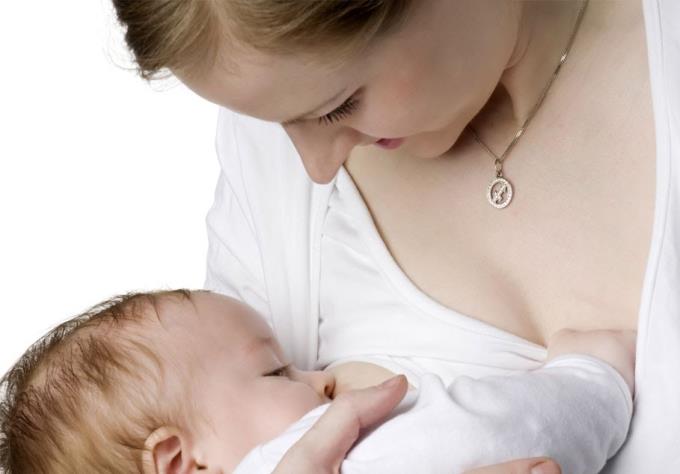
Immediately after birth, feed your baby as soon as possible. Exclusive breastfeeding for the first 6 months of life and keep this for as long as possible. Breast milk is the perfect source of nutrition for infants and young children because it is easy to digest, rarely causes allergies and contains many antibodies that help your baby fight off pathogens.
Newborn baby's stomach is quite small, you need to feed your baby regularly to get enough milk. Your baby will suckle every 1-2 hours / time in the first few weeks of birth, each feeding lasts about 15-30 minutes depending on the amount of breast milk, the baby's need to suck ... When hungry, your baby will have signs such as crying, fidgeting, slitting his mouth repeatedly ...
If it is time to feed your baby and your baby is sleeping, don't wake your baby. Infants need to sleep about 16-18 hours / day, each sleep lasts 1-3 hours, you feed your baby again right after waking up. But if your baby has been sleeping for more than 4 hours, you should wake him up and breastfeed. When you breastfeed, talk, cuddle your baby, don't let your baby sleep when you only breastfeed a little.

Whether you breastfeed or drink formula , after your baby is full, burp your baby and avoid vomiting.
To let your baby burp, hold the baby in a shoulder-carrying position, the baby's belly is against your chest, and gently pat the baby's back. Hold the baby in that position for about 10-15 minutes, you should hold the baby's head and neck carefully because the newborn baby's neck is very weak. This belching helps the baby to limit the vomiting of milk after full feeding and gastroesophageal reflux condition because the function of the valve between the esophagus and the baby's stomach is incomplete. You can refer to some breastfeeding positions for the mother to feel comfortable.
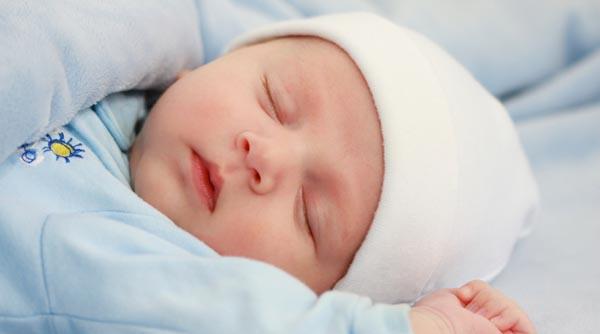
Your baby's bedroom should be clean, cool and quiet so that your baby can sleep easily. For a healthy, full term infant, the appropriate room temperature is around 28ºC. If you use the air conditioner , you should not let the room temperature get too low because it can cause your baby to catch a cold even though fully wrapped and covered with a towel. However, you should not let your child sleep in a room with high temperature that makes them sweat easily, causing itching, irritability, and poor sleep.
Good sleep will help children develop well both physically and mentally. Children can only sleep well when they are breastfed, the body is clean, the bedroom is quiet and airy. You can gently massage the baby before the baby sleep. You can put your baby in the crib and gently rocking, singing soft lullaby or playing soothing music to make it easier for him to sleep.
You should avoid sleeping in a tummy position, if the baby is tummy , be carefully monitored because the baby is at risk of sudden death. Add a small note but very important that you should not put too many pillows, stuffed animals ... around the child. These things can easily choke your child if they are pressed against the baby's nose.
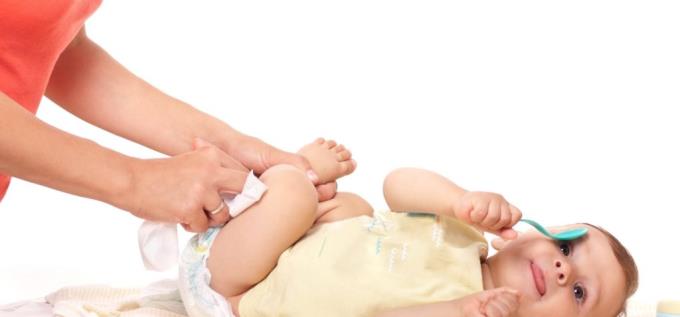
You can let your baby use cloth diapers or paper diapers or use both diapers to save. When choosing diapers for your baby , you should choose the appropriate size, with features against lice, itching. If you give your child a cloth diaper, choose a soft cotton that is well absorbent.
You should change your baby's diaper as soon as he or she is full of diapers or poop. When changing, clean the baby's anal area and genitals with a soft cloth and warm water from front to back. Apply diaper rash or protective cream before putting on a new diaper.
For convenience, you should use baby shower gel 2 in 1 to bathe your baby. Before bathing your baby, you need to prepare the following:
Wash your hands well. Note, when taking care of babies, you should not leave long nails or wear jewelry with rough or sharp surfaces as they can cause the child's skin to scratch.
Small towels, towels, big buckets, clothes, hats, gloves, socks ...
Sterile gauze, cotton swab, cotton swab.
Physiological saline 0.9%.
Before bathing your baby , turn off the fan, turn off the air conditioner, take off your shirt and diaper and massage your baby. Use clean water mixed with boiling water to bathe your baby. Water with a temperature of about 36 - 38 ° C is suitable for bathing children. If you don't have a bath thermometer, you can use your elbow to test your baby's bath water. Note that while bathing your baby, you should talk lovingly with them so that they can feel your love.
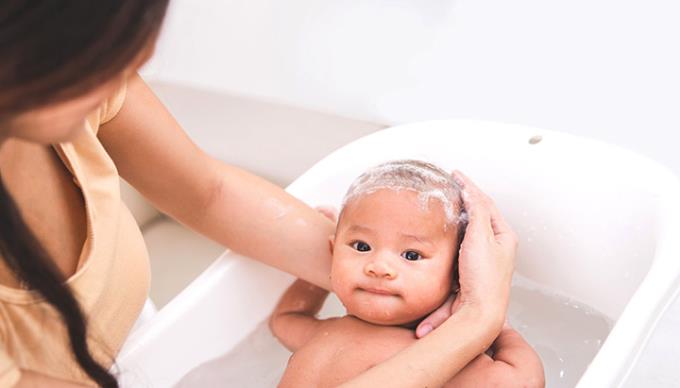
When you have prepared everything, you proceed to bathe your child following these steps:
You lay your baby on the bed or flat, use saline absorbent cotton ball to wipe the baby's eyes in the direction from the inside out.
Use a cotton swab to clean your baby's nostrils.
Clean your baby's face.
Pick up the baby and wash the baby's hair: The thumb and ring finger of the hand holding the baby gently press the 2 ear rings close to the ear to avoid water flowing into the baby's ear, the other hand uses a towel (gauze) to soak the baby's hair. . Next, you take a little shampoo and dab it on your baby's hair and rinse it off, using a towel to dry your baby's head.
When your baby is not yet falling umbilical, you should use a soft cloth to wipe the baby's body, avoid getting the navel wet. If you want to bathe your baby, you put your baby in a tub of water with a little shower gel available, but then need to thoroughly wipe the umbilical area for the baby, avoiding infection.
Put your child in a different bath of bath water to re-bathe.
Lay your child on a bed or flat surface lined with a large bucket towel, dry and warm him.
Use saline to clean your eyes and nose and use a cotton ball to wipe from the inside out. Use a cotton swab / cotton ball to clean the area outside the child's ear. Avoid letting the tip of the saltwater bottle or eye drops touch your child's eyes or nose.
Place physiological saline on the tongue swab to clean the baby's mouth.
Use a cotton ball to absorb the water around the navel, use a cotton swab soaked in normal saline to dry the navel. You should leave your navel open, avoid bandaging immediately to help the navel dry quickly, fall off faster.
Wear a shirt, diaper, gloves, socks and feed your baby right away if there is a need.
If you want to cut nails for your baby, you should cut it after your baby has finished bathing. At this time, the baby is comfortable and the nails are very soft, easy to cut. In addition, you can also wait for your baby to sleep and cut. The regular nail and toenail cutting will help the baby's nails and toenails not be scratched.
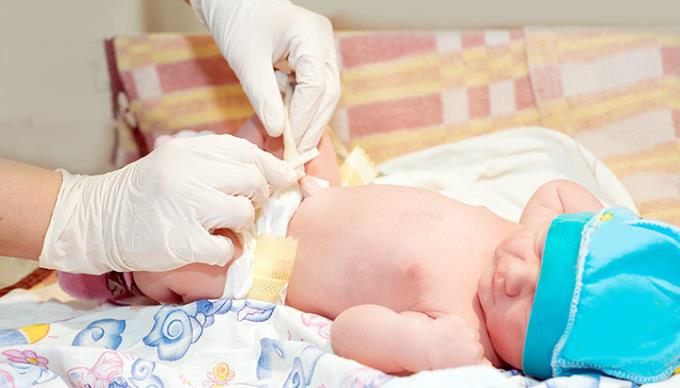
Proper newborn care is essential to knowing how to take care of the newborn umbilical cord. A newborn's umbilical cord is an open wound that, if not cared for properly, can easily become infected. This is a very dangerous condition, if not detected and treated in time can cause complications of sepsis in children .
Umbilical care for newborn babies should be done daily and cleaned according to the following steps:
Before caring for your baby's umbilical cord , you need to wash your hands thoroughly and sanitize them with 90 ° alcohol.
Gently remove the umbilical bandage and umbilical gauze.
Observe the navel cross section and the area around the navel for red inflammation, pus, yellow discharge, bleeding, a bad smell, or any other abnormalities.
Wipe the belly button with a cotton ball with sterile cooked water, then pat the area of the umbilical cord and umbilical legs dry.
Disinfect the skin around the navel with saline saline.
The navel can be exposed or just the navel with a thin, sterile gauze cover.
Wrap the diaper under the navel to avoid letting feces, urine, or anything stain the navel area.
You need to monitor and care for the baby umbilical cord every day. If one of the following is detected, take your baby to the pediatric specialist immediately:
The belly button oozes yellow, has a bad smell, or has pus.
Umbilical bleeding and difficult to stop.
Red, swollen skin around the navel.
Umbilical buds, prolonged oozing.
The umbilical cord has not fallen yet even though the baby is 3 weeks old.
If your baby's umbilical cord shows signs of abnormality, you absolutely must not use antibiotics or any other medicine without a doctor's prescription.
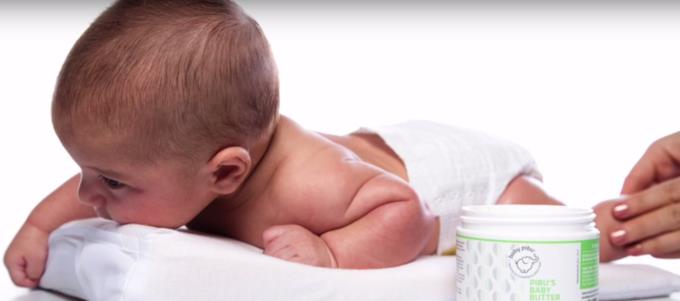
The skin of a baby is very sensitive and vulnerable, so baby's skin care needs to be focused. Skin care and choosing skin care products need to adhere to the following principles:
Avoid contact with irritants: Choose to buy clothes with soft materials, cut off labels. Though mild, repeated rubbing can cause a child's skin to become scratched, which can lead to infection. Use baby or sensitive skin soaps to wash baby clothes.
H sir n ch ế exposure to agents harmful irritants from the environment: You change the baby immediately after the baby pee or i. You should use mild products that have been clinically proven to avoid irritation. Choose the right diaper for your baby.
Avoid harmful substances that can affect your baby's eyes: Babies do not have reflexes to close their eyes and excrete tears, so you need to keep your baby away from cigarette smoke or polluted environments. Use mild, non-stinging hair and skin care products. Avoid cleaning products that contain alcohol or soaps with strong detergents.
Always keep baby's skin in the right humidity: Dry climate or too much washing can dehydrate baby's skin. You should apply lotion to areas with dry or flaky skin on your baby. But not changing diapers often (including cloth diapers, diapers) and hot and humid environment can cause the baby's skin to become infected and infected with fungus. Every time you change your baby's diaper, wash the diaper area with a gentle cleanser and dry your baby.
Limit the impact on the balance of bacteria that are resident on the baby's skin: Bacterial strains that permanently reside on baby's skin are available right after birth. They rarely cause disease unless the skin has an open wound or the skin's natural acidity is destroyed. Therefore, you need to keep the umbilical cord always clean, dry and well-ventilated. Bathe your baby with a gentle shower gel and balanced pH suitable for baby's skin.
In addition, you should let your child sunbathe daily so that he or she has enough calcium needed for development. Sun exposure for babies is also an opportunity for them to contact the outside world, improve their resistance.
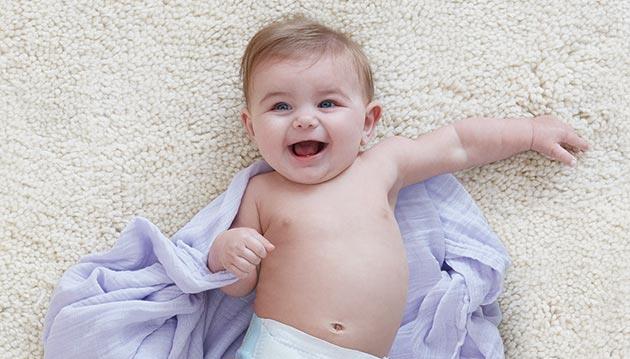
Jaundice is fairly common. Many statistics show that 25-30% of full term babies and nearly 100% of premature babies, weighing less than 1.5 kg, have jaundice.
Babies with jaundice are very dangerous if they are not diagnosed and treated promptly. The cause, jaundice is easy to cause complications due to neurotoxicity, which leads to a high mortality rate and severe sequelae. Therefore, you need to bring your baby to the doctor immediately if he sees signs of jaundice.
Please note that jaundice in children is only considered physiological jaundice at the time of examination if all of the following criteria are met:
Jaundice appears 24 hours after birth.
The baby has jaundice and disappears within 1 week for full-term babies and 2 weeks for preterm babies.
Mild jaundice (face, neck, chest only).
Just jaundice and no other unusual symptoms such as anemia, hepatosplenomegaly, not feeding, laziness ...
The concentration of billirubin / blood does not exceed 12mg% in term babies and not more than 14mg% in preterm infants.
Rate of increase of billirubin / blood does not exceed 5mg% in 24 hours.
If your baby has an abnormality with one or more of the above factors, his jaundice will be considered pathological jaundice, he should be monitored and treated as soon as possible. Note, the infant sunbathing can only treat mild jaundice cases but will help you track the level of jaundice more easily.
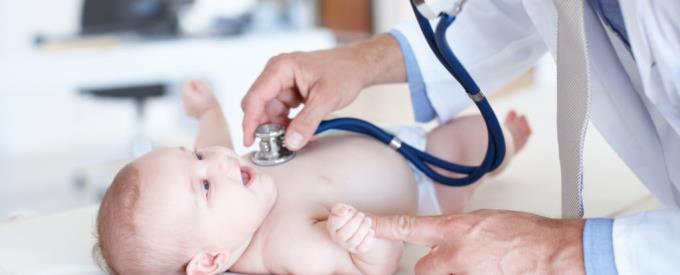
Find out what vaccines your child needs and how to get them? Try to remember the vaccination schedule for your child and give him a full and on schedule. Getting your child vaccinated helps them avoid many dangerous diseases.
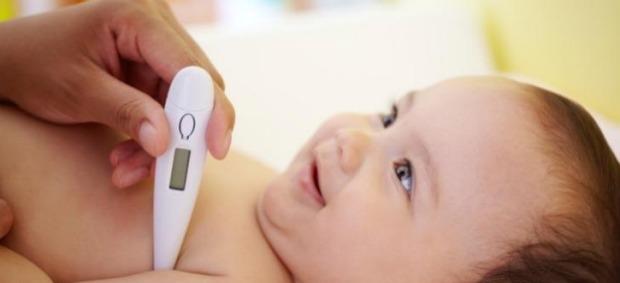
You should buy a thermometer to measure your child's temperature at any time. When you find your baby has a fever, you should take your baby's temperature before considering whether or not to give him fever-reducing medicine. Depending on your baby's temperature, you can adjust your baby's care accordingly:
A normal infant temperature is 36.5 - 37.5 ° C.
If your baby's temperature is lower than 36.5 ° C, you need to warm up immediately.
If your baby's temperature is higher than 37.5 ° C, you should remove towels, blankets, clothes, hats, socks, feed your baby more, and monitor the baby's temperature carefully.
If your baby's temperature is higher than 38 ° C, he or she has a fever. You do the above, give your child the correct dose of fever-reducing medicine and promptly bring them to the nearest medical facility for timely diagnosis.
When measuring a baby's temperature, you should pay attention to where your baby's temperature is taken:
In the armpit: You put the thermometer in the baby's armpit and keep it for about 2 minutes, the temperature in the armpit plus 0.50C is the actual temperature of the baby.
In the anus: You put the thermometer in the baby's anus and keep it for 1 minute, the temperature measured in the anus is the baby's real body temperature.
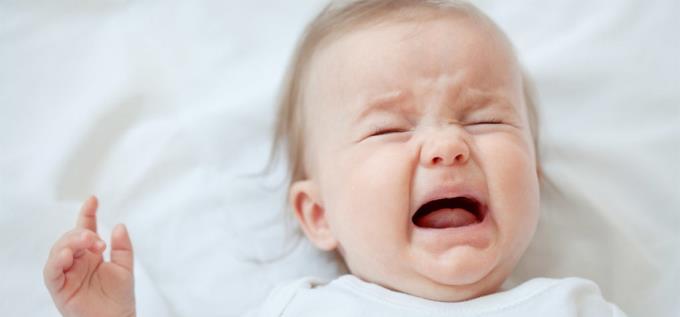
Some babies will often cry at night (known as upset stomach , Western medicine called Colic syndrome). Urticaria is common in children from 2 to 16 weeks of age, crying usually lasts about 3 hours or more and usually occurs in the afternoon, evening. In addition to some physical conditions in infants that need to be examined and ruled out by a pediatrician, Colic is one of the leading causes of night crying in babies. Colic occurs in one-third of babies and resolves on its own without treatment. You can learn more about Colic syndrome to take care of a newborn that cries at night.
If it is extremely difficult to carry heavy labor, taking care of a newborn is a thousand times more difficult, especially for first-time mothers. aFamilyToday Health shares some knowledge to help you more easily take care of babies as well as understand more about children's psychology.
Learn how to determine your baby’s caloric needs, including the calories in breast milk and formula, to ensure your infant gets the right nutrition for healthy growth.
Discover the top 5 smartest dog breeds in the world, including Border Collie, Poodle, German Shepherd, Golden Retriever, and Doberman Pinscher. Learn about their unique traits and why they are considered the most intelligent dogs.
Discover 7 nutritious and delicious ways to cook egg porridge for babies, including recipes with cheese, pumpkin, tomato, and more. Learn how to prepare baby-friendly egg porridge with our expert tips.
After a series of medical measures they obtained a complete human vascular system profile.
Watermelon is one of the fruits that many people love, not only cheap but also delicious, nutritious and refreshing in the summer. To get delicious watermelon pieces, show off your housewives, your artistic talents to cut beautiful pieces of watermelon.
aFamilyToday Health - The digestive system and body in each baby is different. Parents need to recognize notes to deal with when babies have a food allergy!
Babies need many factors for perfect development. aFamilyToday Health shares with parents things to keep in mind when babies are 8 weeks old so that parents can take care of their babies the best!
Babies need many factors for perfect development. aFamilyToday Health shares with parents things to keep in mind when babies are 18 weeks so that parents can take care of their babies the best!
Babies need many factors for perfect development. aFamilyToday Health shares with parents things to keep in mind when babies are 28 weeks old so that parents can take care of their babies the best!
Babies need many factors for perfect development. aFamilyToday Health shares with parents things to keep in mind when babies are 32 weeks old so that parents can take care of their babies the best!








